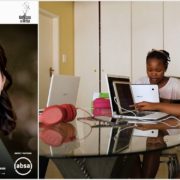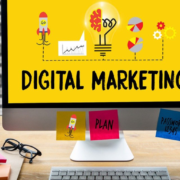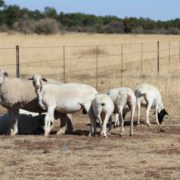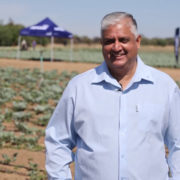by Lori Milner
I am a collector of gems but not the shiny kinds. I surround myself with incredible mentors who guide me and seem to show up when I need them most. Luckily, I am not dependent on actually meeting these incredible people but can access their knowledge whenever I need it. Books are my happy place. Over the years, I have collected valuable nuggets and gems that I often go back to when I need a jolt of inspiration or if I’m feeling stuck.
Here are some of my favourite gems to inspire you to think a little differently:
“Space has a value” — Greg Mckeown, Effortless.
Space is probably the most underestimated resource; the space to think clearly and reflect. Most of my coaching clients complain of fatigue and mental exhaustion during this pandemic. When I ask them about taking micro-breaks throughout the day, they couldn’t possibly comprehend it because ‘they are too busy’. Marshall Goldsmith famously said that what got you here won’t get you there. Perhaps there was a time in your career when grinding through the days played its role and helped you climb the career ladder. Perhaps you were just starting your career and had to prove yourself? Without realizing it, this mode of constant doing has become your accepted reality. Does this belief that success equals pushing yourself past the point of exhaustion still serve you?
Charles Duhigg is one of the leading experts on habits, and he says that the greatest productivity tool today is deep thinking. Not how to hack your emails but stillness, reflection and the space to think. When did you last make time during your weekday, not on your birthday or New Year’s Eve, to think about your future goals and what steps you can take this month, this week and today to move ahead? I know it feels like you have less time in your life since Covid became our new reality, but that’s why now more than ever is creating space the difference between mindless autopilot versus considered action. What does this look like practically? Here are some ideas:
-
Schedule blocks of time throughout the week to think; you can label them meeting with EXCO because you are the executive committee. Bill Gates used to book himself off for ‘Think Weeks’ to do precisely that. Some of the greatest products from Microsoft were born out of this space to think.
-
Block out time on a Monday morning to plan your week. You must decide where your time will be best spent rather than reacting to your inbox or the most urgent query.
-
Take note of the transition moments throughout your day. For example, the space between meetings or when you are fetching the kids from school. Stop trying to fill every minute with an activity like checking your emails. What if you allowed a few minutes to pause, take a breath and set your intention for the next task?
“Live by design, not default” — Tim Ferriss, The 4-Hour Workweek
This has been one of the most profound pieces of advice I have ever come across. It opened my eyes to a new way of being that you get to choose who you want to be and how you want to show up. Tim says that “Lifestyle Design is thus not interested in creating an excess of idle time, which is poisonous, but the positive use of free time, defined simply as doing what you want as opposed to what you feel obligated to do.”
How do you live by design? The starting point is creating clarity on what you want for your life. Use this precious space you created and schedule in time to journal about your future goals. Where would you like to be three years from today? Then work backwards and create smaller goals — where do you want to be one year from today? Now break it down further. What has to be done this month, this week and then today to achieve my goals a year from now? Again, without space, there is no room to become the architect of your days. When you function on autopilot, you are the victim of your calendar and reacting to other people’s urgencies.
This concept of living by design applies to your everyday world, not only the future.
· What would your ideal morning look like?
· What time would you wake up and what activities would you like to do to put yourself into a peak state? Checking your phone first thing is not an option. How about exercise, meditation, reading, studying, journaling, watching inspiring talks, taking a walk in nature, reading inspirational quotes or prayer?
· What does your weekend look like? How are you using the time for connection, recovery and fun?
You can also take this concept a level deeper to design your emotional landscape. How do you want to experience your days? How can you move through the day with joy, contentment and gratitude rather than stress, resentment and overwhelm? Setting your intention every morning is how you begin to live by design. What energy do you want to bring to your family, your work, your colleagues and yourself? This may mean redesigning your evening routine so you can get to sleep an hour earlier without checking your emails or messages before bed but rather relaxing with a good book. The more deliberate action you can bring to your days, the more you live a life by design rather than default.
“Shift from visualizing future hours spent on something to spending just a few minutes getting it started. This shifts you into the present moment (the only place where great things are created.)” — Shift your mind, shift the world by Steve Chandler
When you live by design, there is a tendency to get stuck in your head. There is a delicate dance between setting an intention, having big goals, and taking action. If you spend too much time journaling and visualising your future, you can become anxious. Anxiety shows up when you spend too much time in the future, but no action to show for it today. Micro wins are the antidote to inaction.
Like Steve Chandler says, shift to spending a few minutes getting it started. What is the first LEGO brick in the creation? It may be one page, one squat, one mindful breath? Or it may be the first slide of the presentation or the first module in a course you are studying.
Procrastination can happen when the goal feels too audacious and there is no clear starting point. You want to shift from the habit of putting something off to the habit of starting. When you create your micro win, acknowledge it, no matter how small. I celebrate my wins by acknowledging the progress I made. When I have to write, it is not about how many words I got down in the allocated time slot but that I showed up to write and got something on the page. I have learnt never to judge a piece by the first draft but celebrate the terrible first draft because things can only improve from there. As Seth Godin says: “The only choice we have is to begin. And the only place to begin is where we are. Simply begin. But begin”.
“When you choose a behaviour, you choose its future consequences.”— Derek Sivers, How to Live.
Think about when you begin a habit, one innocent after-dinner snacking on cookies seems harmless but multiply that every day over a year, and you are far away from your hitting your health goals. The keyword is choice and taking ownership of your actions. The behaviours you choose today directly impact your future self. If the version of yourself three years from today is a successful executive where public speaking is a requirement, you need to consider the consequences of not showing up to public speaking opportunities today. This doesn’t mean you need to speak on a stage but get comfortable speaking up and sharing your ideas in meetings with your colleagues and clients. What you choose to avoid or show up to directly impacts the person you are becoming.
The way forward is to ask yourself — am I giving into instant gratification because it’s easier today? Or am I prepared to forgo feeling good today and embrace the discomfort of doing things differently because I know it will serve me in the long run? The next time you hit the snooze button, picture your future self looking at you. Can you look them in the eye and be proud of your choice? I know it sounds harsh, but change is hard. Having accountability to your future self is the greatest motivation there is.
Another nugget from Derek’s book, How to Live is: “Choose ritual over inspiration”.
The truth is, you will seldom feel like doing the task in question, especially if it’s something that feels uncomfortable despite being good for you. If you’re creative, you can’t wait for the inspiration to appear to give you permission to get started. The muse only shows up when you’re in the activity and doing the work. Choose ritual over inspiration means that having something scheduled in your calendar on a specific day; time and location are more reliable than waiting to feel like it. Rituals repeated become habits. As Gary Keller says in The One Thing: “You are what you repeatedly do; then achievement isn’t an action you take but a habit you forge into your life. You don’t have to seek out success. Harness the power of selected discipline to build the right habit, and extraordinary results will find you”.
Before you are a “bestselling author,” you’re an author, and authors write. Before you are an “acclaimed entrepreneur,” you’re simply someone who is building something. “I am _______, but they just don’t realize it yet” is totally different from “I’m not _______ because they didn’t tell me I was.” — Seth Godin, The Practice.
Seth Godin is one of my favourite writers because he says it like it is. I know I have been guilty in the past of placing my self-worth on the opinions of others. I would sit with feedback forms for a week before I dared to read through them. I can happily say they were always positive, but I had not internalized my contribution first. Once I was given the validation I craved, I would only then believe the value I bring. Be aware that placing your self-worth on the opinions of others is giving away your personal power. You do not need anyone or anything to become a permission device to do what you love and express who you are. You don’t need a business partner or another degree or read another book to pursue your passion. As Seth says:
“Writers write. Runners run. Establish your identity by doing your work”.
“When we embrace imposter syndrome instead of working to make it disappear, we choose the productive way forward. The imposter is proof that we’re innovating, leading, and creating.” — Seth Godin, The Practice.
In my experience as a coach and trainer, I can tell you everyone experiences imposter syndrome. It is defined as doubting your abilities and feeling like a fraud. It shows up when you are moving out of your comfort zone into your courage zone when you take on a new role and use a skillset for the first time. It shows up when you are forced to ride without training wheels, but you wish you could have kept them on a few months longer to know you’re ready. I love Seth’s reframe of imposter syndrome as something positive — it means you’re growing, and let’s be honest, growth is uncomfortable at first. Over time, this new position or role becomes your new normal, and the inner critic eventually dies down.
The next time you can feel the imposter syndrome rising in you, notice it.
Remind yourself that you are not pretending to be something you’re not; you’re stepping into who you are becoming. I liken this to parenting; there is never a time that you will ever truly feel ready to have kids. You feel like a fraud for years until you have a semblance of getting something about it correct. Well, I know that’s how I feel about it. I am still waiting for the ultimate parenting guide to be released, but apparently, it’s not coming anytime soon. When the imposter syndrome shows up, celebrate it. It doesn’t mean you are doing anything wrong but everything right.
Final thoughts.
When you feel stuck, need a boost of inspiration or want to upgrade your skillset, don’t fall into the trap of thinking you need a mentor or need to do another course. Books are the quickest way to upgrade your knowledge because you have the benefit of distilled experience. Most writers choose to make their mess their message and share their insights because they have been through success and failures and are happy to give you the shortcuts. You don’t need to make their mistakes but benefit from their experience and infuse it into your life today. Reading is the ultimate meta-habit. Warren Buffet spends 80% of his day reading if you don’t take my word for it. Charlie Munger shared his views on reading to a graduating class: “I constantly see people rise in life who are not the smartest, sometimes not even the most diligent, but they are learning machines. They go to bed every night a little wiser than they were when they got up and boy does that help, particularly when you have a long run ahead of you.”
Here’s to our virtual mentors,
Warm wishes,
Lori
















